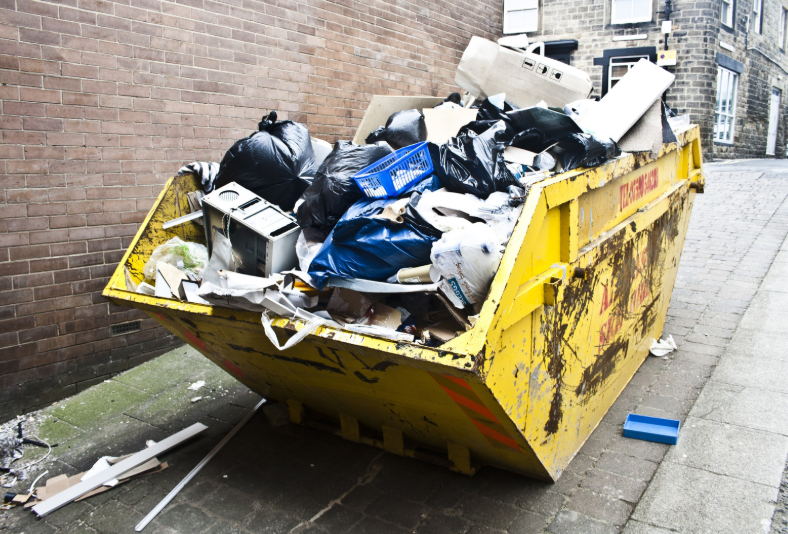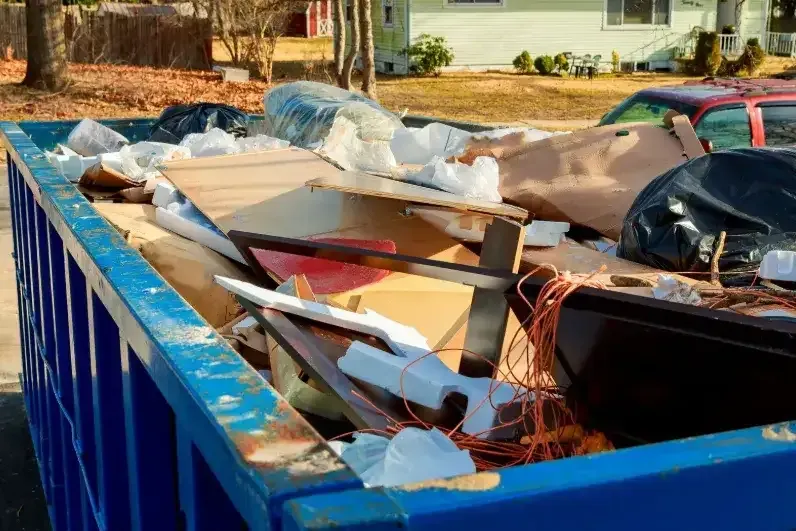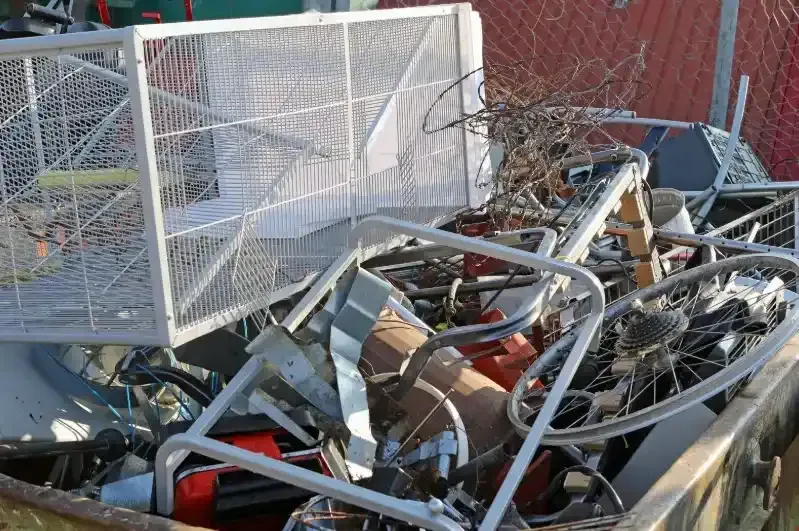E-Waste Disposal: Why It’s Important for Our Future
In today’s digital age, we’re surrounded by an ever-growing number of electronic devices. From smartphones and laptops to tablets and televisions, technology is more ingrained in our lives than ever before. However, with this constant innovation comes a pressing issue: electronic waste, or e-waste. Disposing of e-waste responsibly is not just a matter of convenience—it’s a necessity for the future of our planet. As our dependence on technology continues to surge, understanding the importance of e-waste disposal becomes crucial, not just for our generation but for the ones to come.
E-waste refers to discarded electronic devices that are no longer in use, whether because they’ve become obsolete, malfunctioning, or are simply no longer needed. The rapid pace of technological advancements means that consumers frequently upgrade their devices, leaving a trail of old, outdated electronics behind. While it’s tempting to simply toss these devices in the trash, improper disposal can lead to significant environmental and health issues. The need for proper e-waste disposal is not just a matter of environmental stewardship—it’s also essential for public health, resource conservation, and sustainable development.
The Environmental Impact of E-Waste
One of the most significant dangers of improper e-waste disposal is the harmful effect it has on the environment. Electronics contain a variety of materials that, if not disposed of correctly, can leak into the soil and water supply, contaminating ecosystems and posing risks to wildlife. Many electronics contain toxic substances such as lead, mercury, cadmium, and arsenic—substances that can cause irreparable damage to the environment.
When e-waste is improperly handled, particularly through methods like incineration or sending it to landfills, these toxic chemicals are released into the air or leach into the soil. For example, lead found in cathode ray tubes (CRT) from old televisions or computer monitors can contaminate the ground and water sources. These toxins not only harm plant and animal life but can also end up in the food chain, affecting human health. The pollution from e-waste is a silent but destructive force that threatens the delicate balance of our natural resources.

The Health Hazards of Improper Disposal
The hazardous chemicals in e-waste are not just a danger to the environment—they also pose significant health risks. When electronics are improperly dismantled or burned, these harmful substances are released into the air, creating toxic fumes that can cause respiratory issues, skin diseases, and other serious health problems. In some countries where e-waste is often exported, workers—often in unsafe conditions—are exposed to these chemicals, leading to severe health issues like lung cancer, neurological damage, and kidney disease.
Furthermore, improper e-waste disposal in landfills can result in the slow release of toxic substances into the water supply. When these substances contaminate water sources, they can cause a range of health issues, from gastrointestinal illnesses to developmental problems in children. Communities that live near landfills or illegal dumping sites are particularly vulnerable to these health risks.
Resource Conservation and the Circular Economy
One of the lesser-discussed but equally important aspects of e-waste disposal is its role in resource conservation. Electronic devices contain valuable materials such as gold, silver, copper, and rare earth elements. These materials are finite, meaning that the more we extract from the earth, the scarcer they become. By recycling e-waste, we can recover these valuable resources and reduce the need for mining, which is often environmentally damaging. Recycling e-waste supports a circular economy, an economic model where resources are continually reused and repurposed rather than discarded. This reduces the demand for new raw materials and minimizes environmental degradation.
For example, gold and silver are often used in the manufacturing of smartphones, computers, and other electronics. By recycling these materials, we can help prevent unnecessary mining activities, which often involve the destruction of entire ecosystems and the displacement of local communities. Moreover, the energy required to mine and process these raw materials is significant. Mining for rare earth elements, for example, is energy-intensive and contributes to greenhouse gas emissions. By recycling e-waste, we can reduce the energy consumption associated with the production of new electronics.
The Role of E-Waste Recycling Programs
Given the dangers and resource implications associated with improper e-waste disposal, it’s essential to promote and support e-waste recycling programs. These programs allow individuals and businesses to safely dispose of their old electronics in a manner that minimizes harm to the environment and public health. Many local governments, private companies, and non-profit organizations offer e-waste recycling services, providing convenient drop-off points and scheduled pickups to encourage proper disposal.
These processes can involve dismantling the electronics to separate different components, such as plastics, metals, and glass. The valuable materials are then extracted and purified for reuse. Additionally, many recycling programs focus on reducing the environmental impact of e-waste by ensuring that hazardous chemicals are properly handled and disposed of in accordance with environmental regulations. The importance of supporting these programs cannot be overstated. When individuals and businesses take advantage of e-waste recycling options, they contribute to a more sustainable future.
The Global E-Waste Crisis
E-waste is a global issue, affecting both developed and developing countries. While wealthier nations tend to produce the most e-waste due to high consumption rates, developing countries often bear the brunt of the disposal problem. Many electronics are exported from high-income countries to lower-income regions, where they are processed or disposed of under unsafe and unsanitary conditions.
This global trade in e-waste is a significant concern, as it often leads to environmental pollution and health risks in countries that lack the infrastructure to handle e-waste safely. For example, in some parts of Asia and Africa, e-waste is often dismantled by hand or burned, exposing workers to dangerous chemicals without any protective measures. These practices can result in long-term health problems and environmental degradation.
The Future of E-Waste Disposal
As technology continues to advance at an unprecedented rate, the future of e-waste disposal is becoming more urgent. The global volume of e-waste is expected to rise steadily, posing significant challenges in managing and recycling discarded electronics. However, innovation, policy changes, and heightened public awareness could pave the way for more sustainable practices. Governments around the world must implement stricter regulations to ensure the safe disposal of e-waste and incentivize companies to adopt responsible recycling methods.
A promising solution lies in the development of eco-friendly electronic devices designed with recyclability in mind. Manufacturers are increasingly focusing on using sustainable materials and designing products that are easier to disassemble and recycle. Additionally, emerging recycling technologies, such as more effective e-waste processing techniques, can recover a greater amount of valuable resources like gold, silver, and copper, while minimizing the environmental impact of the recycling process. The future of e-waste disposal depends on these innovations and the collective effort of all stakeholders to create a more sustainable and efficient waste management system.
The Role of Consumer Awareness
Despite the strides made in e-waste recycling, one of the most significant hurdles is consumer awareness. Many people remain unaware of the proper disposal methods for their old electronics, often resorting to simply discarding them with regular trash. This lack of understanding about the impact of improper disposal contributes to the ever-growing e-waste crisis.
Raising awareness about the importance of e-waste recycling is key to addressing the issue. Educational initiatives—whether through schools, media campaigns, or public service announcements—can help people understand the far-reaching consequences of throwing away electronics. The more individuals understand how recycling can benefit the planet, the more likely they are to take the necessary steps to dispose of their devices responsibly.
The Economic Benefits of E-Waste Recycling
While much of the focus on e-waste disposal revolves around environmental and health concerns, there are also significant economic benefits associated with recycling electronic devices. E-waste recycling creates jobs and stimulates the economy. For instance, it requires specialized facilities, machinery, and skilled workers to properly dismantle, sort, and recycle the various materials found in electronics. Additionally, the recovered metals, plastics, and other materials from e-waste can be reused in the production of new devices. This creates a closed-loop system that benefits manufacturers, consumers, and the environment alike.
By reclaiming valuable resources, recycling e-waste reduces the need to extract raw materials from the earth, saving both energy and money. The recovery of precious metals such as gold, silver, and platinum from e-waste is particularly economically valuable. These metals, which are used in the production of electronics, can be extracted through the recycling process and sold on the global market. This reduces the need for mining, a resource-intensive activity that contributes to environmental destruction.
Conclusion
In conclusion, the importance of e-waste disposal cannot be overstated. Proper disposal of electronics is essential to protect the environment, safeguard public health, conserve valuable resources, and foster a circular economy. As our reliance on technology continues to grow, so does the volume of electronic waste, making it more crucial than ever to ensure that it is disposed of correctly. E-waste contains hazardous materials that can leach into our soil and water supply, causing long-term environmental damage. By recycling e-waste, we help recover valuable materials and reduce the need for harmful mining practices, all while minimizing the carbon footprint associated with producing new devices.
E-waste recycling programs, both at the local and global levels, play a vital role in mitigating these risks and contributing to a sustainable future. The more we support responsible disposal practices, the cleaner, healthier, and more sustainable our planet will be for future generations. At Lasso & Load Junk Removal, we are committed to assisting with all your junk removal needs, including safe e-waste disposal. For more information on how we can help, contact us at 404-227-2017 or email Lauren.renwickk@gmail.com.









